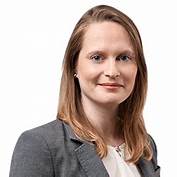“Would you like some?”
Four students serve homemade vegetable soup with garlic bread. It may seem like a publicity stunt because a Norwegian Minister of Knowledge has come to visit us, but Katie Chen, who scoops the soup, points out that this is completely normal.
– I think it was the parents and the principal who did it, said Chen.
In the school kitchen at Martingrove Collegiate Institute, a 1,200-student public high school on the outskirts of Toronto, there is almost always food available for those who are hungry.
– We found that if students are hungry, they don’t work as efficiently, explains Cythia O’Brien. On a volunteer basis, she runs a program alongside other parents who ensure that food is available for students here in the school kitchen for most of the day.
– We get free bread from nearby bakeries and grocery stores. Some parents help prepare bread, butter and cold meats when the children arrive in the morning. And after we started doing it, we realized that for many it was an important part of everyday school life.
But the hunger for things other than bread and butter is also satisfied in the Canadian school.
Little intimidation
– It’s a good school. Everyone is accepted, lots of friends, no teasing or bullying, says Yahiya Hussein. We meet him in the school’s auto workshop, located in the middle of the normal classrooms. Here a group of students learn how cars work and how to repair them. Yahiya, born in Canada but of Somali parents, is one of them.
He doesn’t know if he wants to become an auto mechanic.
– Maybe an engineer or an architect. It’s fun to try different things, he said.
Trying different things seems to be part of the curriculum at this school. Here, vocational students and those preparing for extended university studies learn side by side. It’s not a brand new school with all kinds of high technology, but Martingrove claims to be a place where students thrive and learn from each other.
– Our goal is that all students have an offer adapted to their needs, explains director Rafaele Nigro.
High expectations
This is part of the major school initiative launched by the province of Ontario, where 40 percent of Canada’s residents live, ten years ago.
The goal was to create a school where every student succeeds and feels good.
Students should not only focus on learning the facts, but also the big ideas.
They must become good problem solvers, able to succeed professionally, contribute to Canada’s economic growth and become active citizens.
To achieve these ambitious goals, Ontario schools place high demands on both students and teachers, but also respond to demands by providing significant resources for responsive education.
Teachers also need to be among the best in the world, says a PowerPoint presentation we receive from the Ontario Ministry of Education. This is why resources have also been reserved for the continuing training and specialization of teachers.
Education Minister Torbjørn Røe Isaksen is in Toronto to learn from Canadian schools.
Photo: Tove Bjørgaas / NRK
83 percent in Canada, 71 in Norway
Ten years later, the results are visible.
– The proportion of students who complete their upper secondary education has increased significantly. Today, 83 percent of the work has been completed in five years, says director Rafaele Nigro.
In Norway, only 71 percent of students who started secondary school in 2008 completed it within five years. Only 57 percent of vocational training students managed to achieve the same result, while the proportion among those taking study preparatory courses was 83 percent.
– Ontario has done many exciting things with its school system. They have raised the level of completion, says Torbjørn Røe Isaksen.
On what we call The PISA test which tests the national level of 15-year-olds in reading, mathematics and science, Canada also performs consistently. In the last test, they ranked 13th in the world, behind China, South Korea, Finland and the Netherlands, but ahead of all other European countries and the United States. Norway comes in 30th place.
Gifted from the 3rd year
The Ontario authorities are very concerned that every student benefits from an offer that allows them to get the most out of their studies.
This applies to students who need a little extra help in certain subjects. But this also applies to those who would have been bored if everyone had received the same training.
In the school kitchen, the principal has gathered representatives of the student council who will explain to Torbjørn Røe Isaksen what it means to go to this school.
– I’m not good, but there are a lot of them here, said Mannie Bissel.
Students use the word “gifted” as the most natural word in the world.
Some of them are part of the program for particularly gifted students; like Katie Chen.
– I took an exam in 3rd year and joined this program, she said. Ontario offers a program for academically gifted students in select schools in each school district. Martingrove has such a program for this part of Toronto.
“I think it’s good that we have this program, but I also have a lot of friends who aren’t “married,” Katie says, pointing to Sophie Martin who is standing next to her.
– There are certain things that separate those who are in the program and those who are not, but we have enough subjects in common that we get to know everyone, said Sophie.
Many of the students we meet in the school kitchen instead follow an academic program where students face significant challenges, but not as great as in the national curriculum.
– My mother is against the “gifted program”. My brother didn’t go and had mental problems because of it, so I’m not part of that program, Bissel said.
Director Rafaele Nigro, however, is a staunch defender of the program.
– These are students who would have been bored in a normal class. Here they are provided with challenges that allow them to contribute to the school and the learning environment as a whole. Students are seen as a resource for others. This pleases the Norwegian Minister of Knowledge, says Torbjørn Røe Isaksen.
– In Canada, they were very successful in forming teams at school.
And he adds:
– They are so aware of the level of the students that students of all levels are entitled to personalized teaching. This impresses me, says Torbjørn Røe Isaksen.
He doesn’t believe every aspect of the Canadian program can be transferred to Norway, but he certainly learned something.
However, it is not clear whether Norway should establish a national program for particularly gifted students.
– I’m not sure this is the way forward for us, he said.
The ice cream is not the first from the Norwegian school sector to visit Canada. Several delegations from the county council have also taken place, but so far the impressions have only been integrated into the strategic plans of the county council, as far as NRK is aware.
But the Ministry of Education now wishes to draw inspiration from the example of Canada, particularly with regard to monitoring the academically strongest students in Norway.
– We have relatively few students at the highest levels, for example in mathematics and science, if we compare ourselves to other countries. We need to look at this, says Røe Isaksen.
83 languages
Martingrove Collegiate Institute is a school that likes to promote itself here in Ontario, but it is not an elite school.
The school is located a 20-minute drive from Toronto, in a neighborhood with a wide range of socio-economic groups and ethnic backgrounds. 83 different Indigenous languages are spoken at the school, and many of the students were born outside of Canada.
– We try to support everyone as best we can. It’s a challenge and we would like to have more resources, but it’s going well, says director Nigro.
Many students here were also born in other countries, like Shaun Lee.
He came here from South Korea when he was in 2nd grade.
– It’s a good school. Here you can try a lot of different things, says Lee.
He is repairing cars when NRK meets him. Shaun isn’t sure what he wants to do after finishing high school, but as he says himself:
– If no other door is open to me, I can become an auto mechanic.
Published
11/24/2014, at 12:47 a.m.

“Explorer. Food advocate. Analyst. Freelance bacon practitioner. Future teen idol. Proud pop culture expert.”






